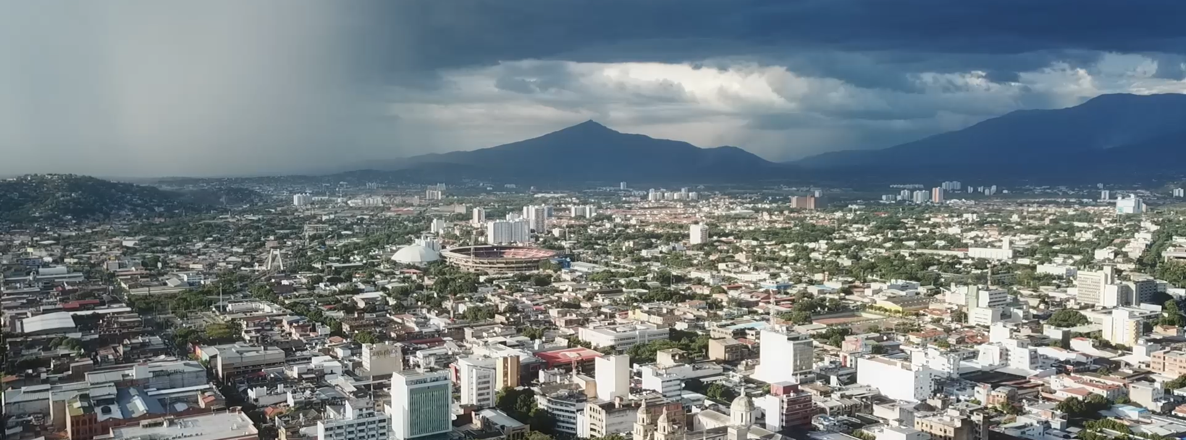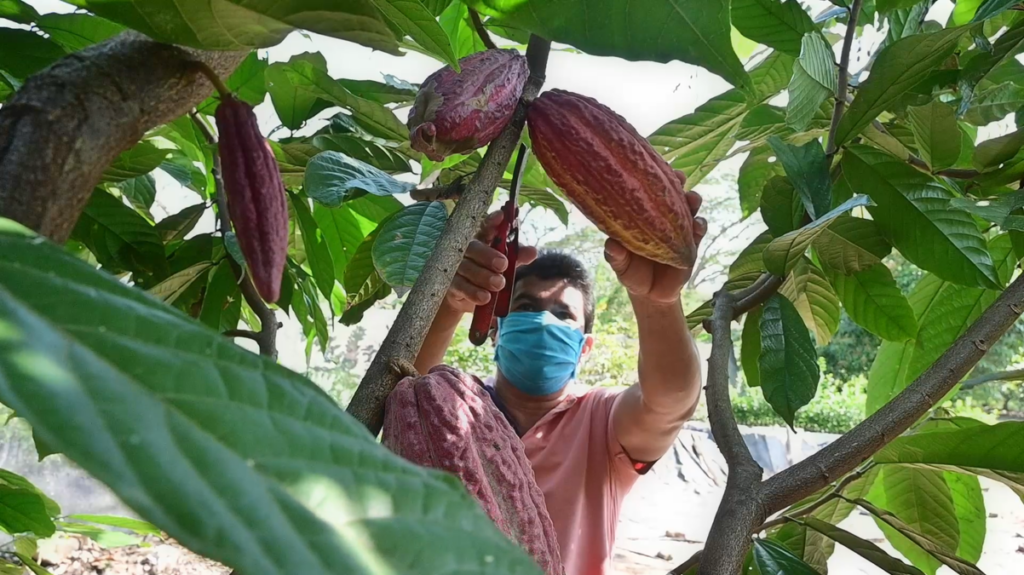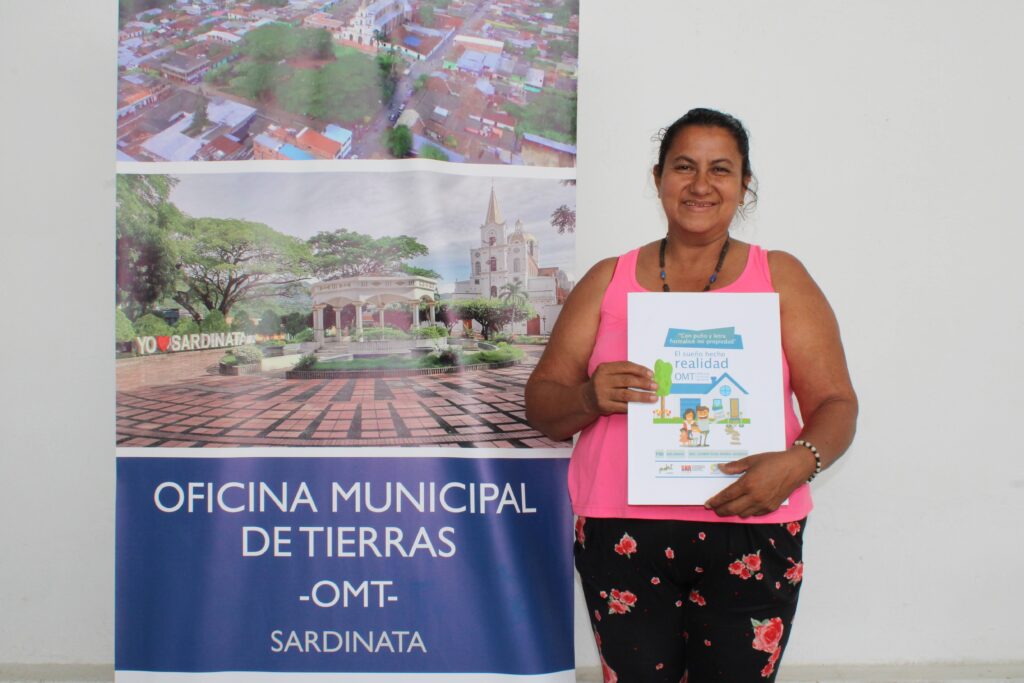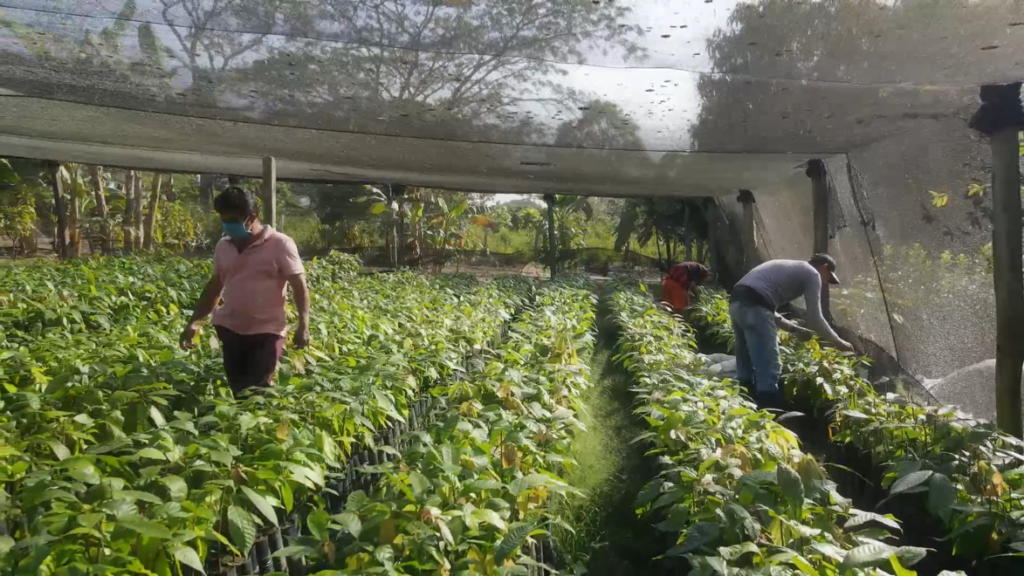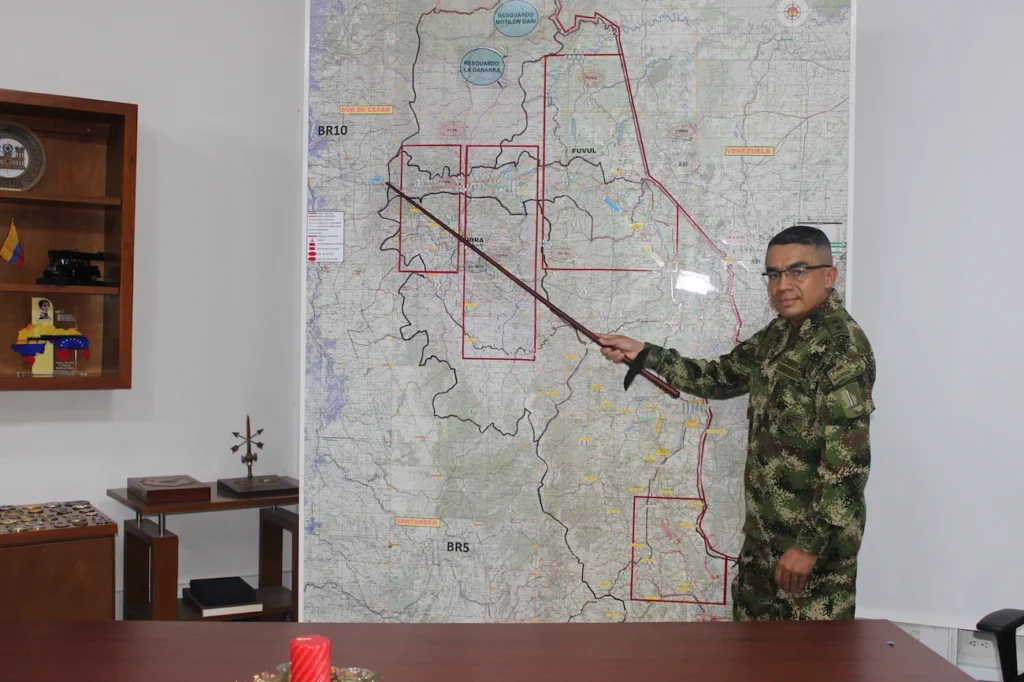TEORAMA, Norte de Santander, Colombia – A few days after the government delivered 118 property titles to property owners in Teorama, a town located in the heart of Colombia’s Catatumbo region, violence and forced displacement once again knocked on the doors of the municipality.
Under threat, 79 families, or more than 250 people, made the difficult decision to leave their homes, crops, and animals, to seek refuge in the community center of San Pablo, a nearby town, according to a report by the United Nations Office for the Coordination of Humanitarian Affairs (OCHA). Despite a military base nearby, the families feared they would be the next victims of harassment by the armed groups that stalk the area and traffic in drugs, charcoal, and fuel.
“We are sending an urgent S.O.S call to the government and our president Gustavo Petro, to establish a dialogue agenda that can cease these confrontations,” the mayor of Teorama, Robinson Salazar, was heard on a local radio station.
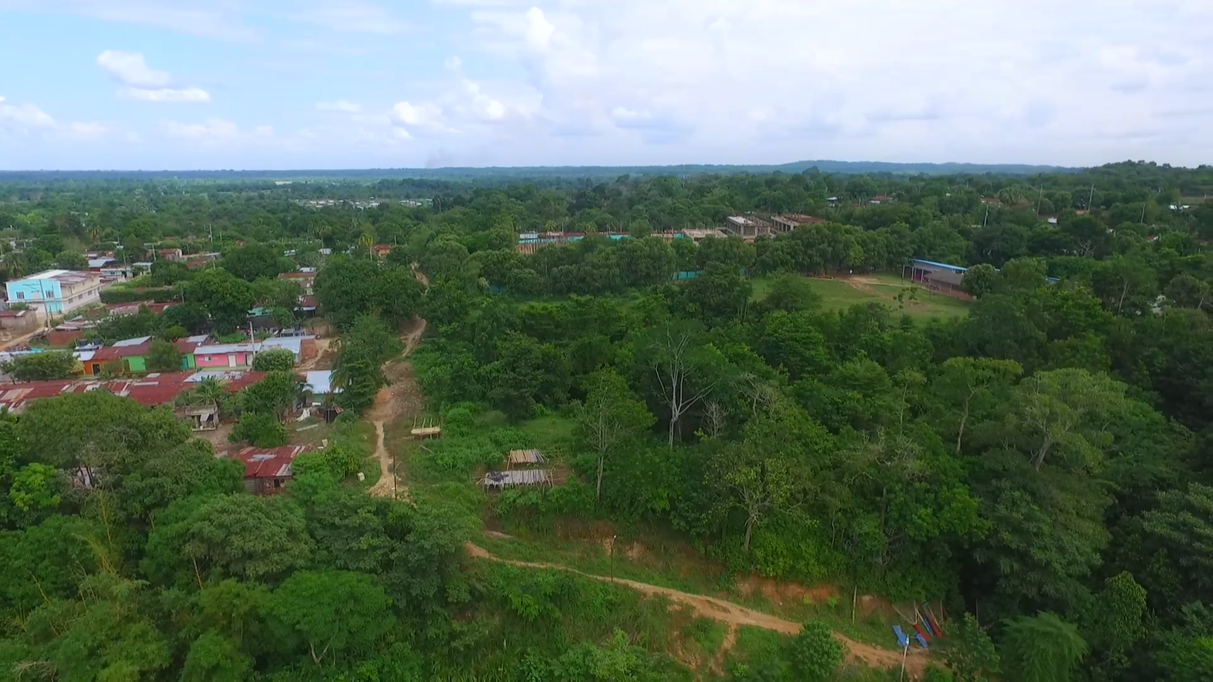
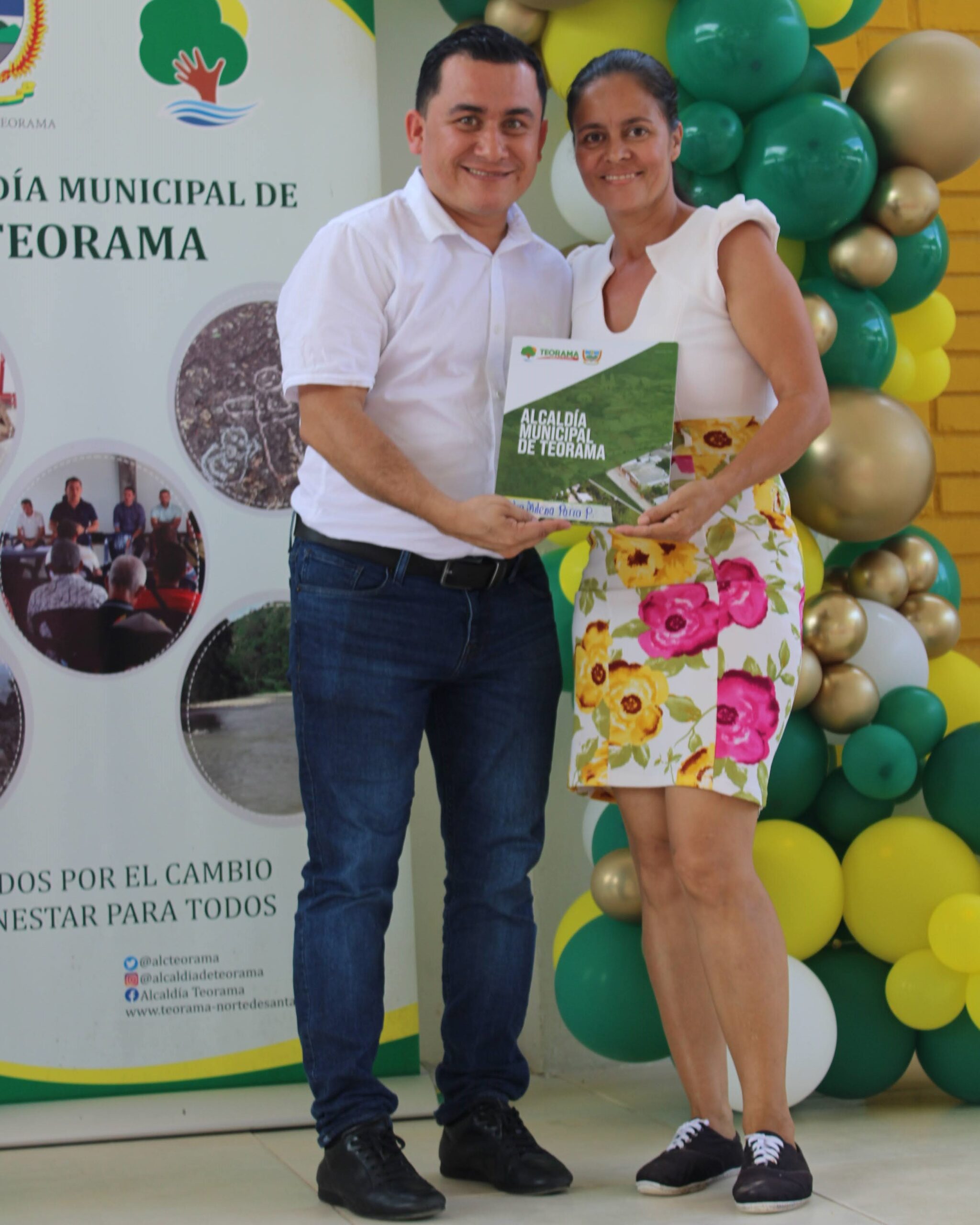
Local Land Administration
The land titles correspond to urban properties in the town of San Pablo and were facilitated by Teorama’s Municipal Land Office, which is supported by the USAID-funded Land for Prosperity program. USAID is helping the Colombian government to improve land administration and rural development in priority areas identified under the 2016 Peace Accords.
As a partner, USAID is investing in the capacity of Colombia’s land agencies to strengthen a formal land market and provide legal certainty over property ownership in rural areas where informal land ownership has flourished for generations.
“Catatumbo is a historically conflictive region marked by the lack of presence of the state and its institutions, which has left the responsibility to the security forces, and that has allowed all these factors of violence to grow,” says Brigadier General Ricardo Heriberto Roque, commander of the Specific Command of Norte de Santander.
This abandonment is apparent in the lack of access to villages like San Pablo. Poor roads are the tip of the iceberg but set the stage for the provision of health and education services, which are in a dismal state. Traveling to San Pablo involves other risks, such as a series of checkpoints, where people allegedly associated with criminal groups like the National Liberation Army (ELN) demand small, yet illegal payments.
Due to the presence of criminal groups, illicit crops are common and the theft of hydrocarbons is on the rise. Catatumbo’s location on the border with Venezuela makes it fertile ground for other crimes like extortion, kidnapping, and other forms of terrorism. The groups operate side by side, but not always in unison.
“This has produced a calm, but it is a tense calm that, at any moment, as in any business, can generate a type of friction or disagreement,” says General Roque.
Based on the coordination, the authorities are aware of USAID’s movements, the people traveling, and the type of work being done. Each trip requires a security study that involves a detailed examination of the conditions in the area, the determination of the safest times to travel, and a security protocol for each visit.
“We want to contribute to generating incentives so that in Catatumbo, their properties are legally owned. It is a complex scenario but not impossible to improve the quality of life of the people, focused on a legal economy and the improvement of the land, so that they have legal products, which can impact the entire community.”
Colonel John Robert Chavarro
Police Commander of Norte de Santander
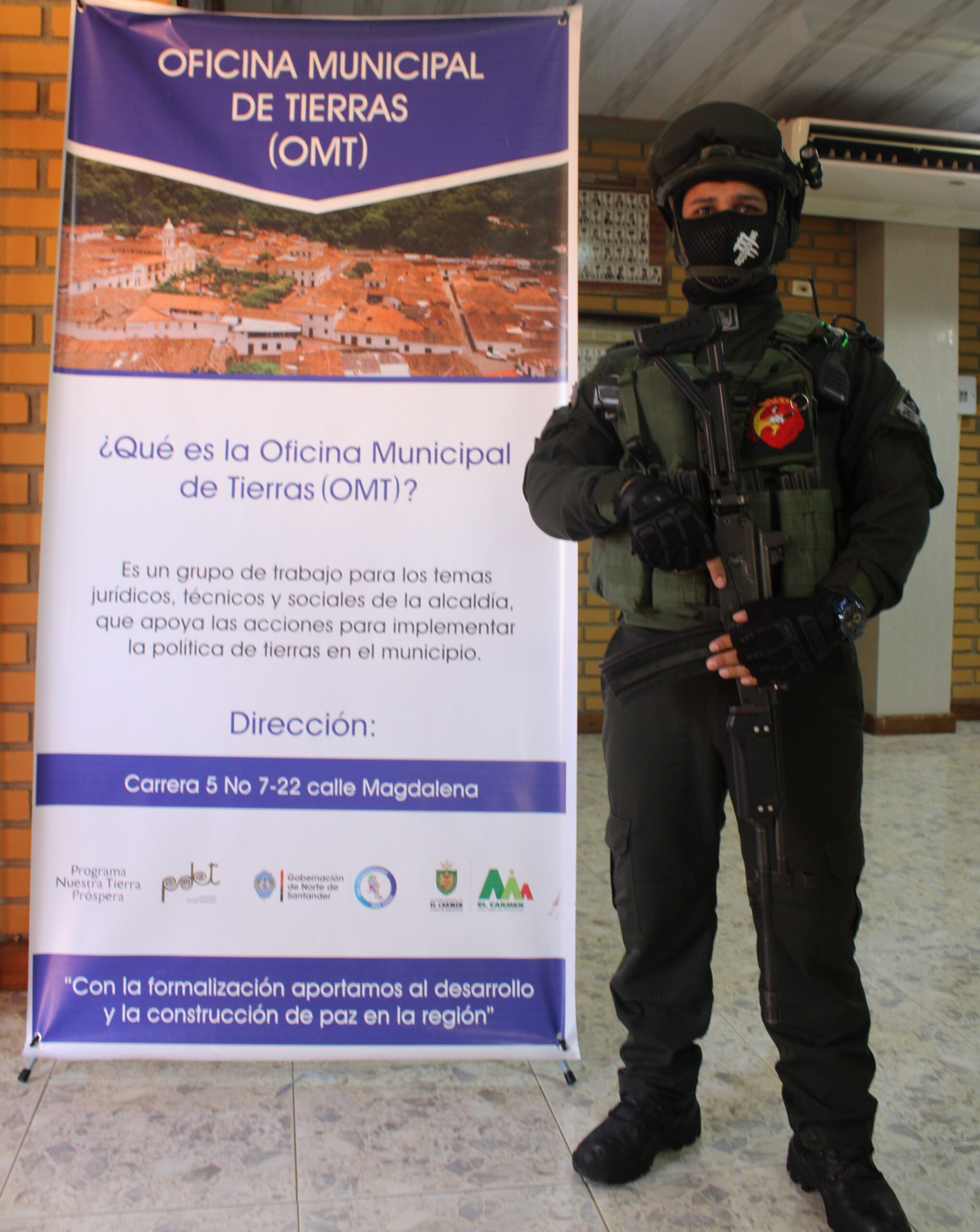
Crucial Relationships
The mitigation of these security challenges associated with working in rural areas on controversial topics like land ownership is made possible through permanent coordination and communication with the communities and the Armed Forces.
In addition to the military, the USAID program coordinates with municipal council members, neighborhood leaders, school teachers, and social leaders to facilitate the formalization of public and private land parcels. Since 2019, the government has titled 450 properties in Catatumbo with USAID’s support, some 20 percent of which correspond to parcels in Teorama.
The program also works with students, youth groups, and local media such as Irradiarte Producciones, a youth-led digital channel with a strong presence on social networks. Irradiarte is one of few media channels based in Sardinata and focused on issues in Catatumbo.Through its partnership with USAID, Irradiarte promotes land titling to reinforce a culture of formal land ownership among citizens.
“We accompany the Land for Prosperity program to visit communities to inform and explain the functions of the Municipal Land Office and promote achievements like the delivery of the land titles,” says Christian Orozco, a 29-year-old community journalist.
“We are trying to generate trust with the community.”
“These youth leaders are working passionately for their communities and without their knowledge and astuteness, it would not be possible for land surveyors to enter these villages or transit on these roads full of uncertainty,” says Luz Amparo Fuentes, Land for Prosperity Catatumbo regional coordinator.


